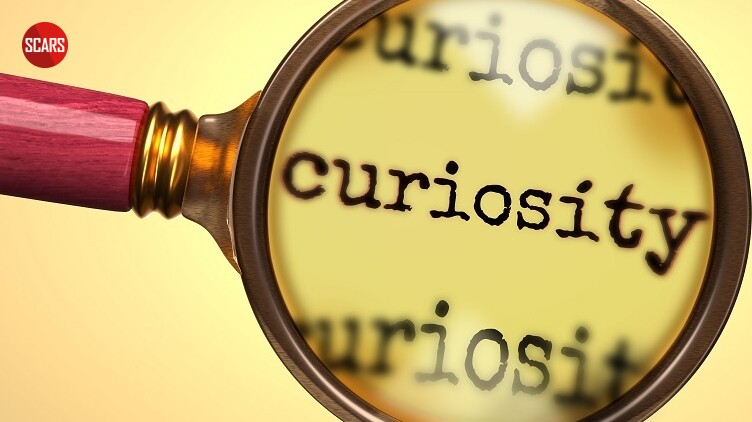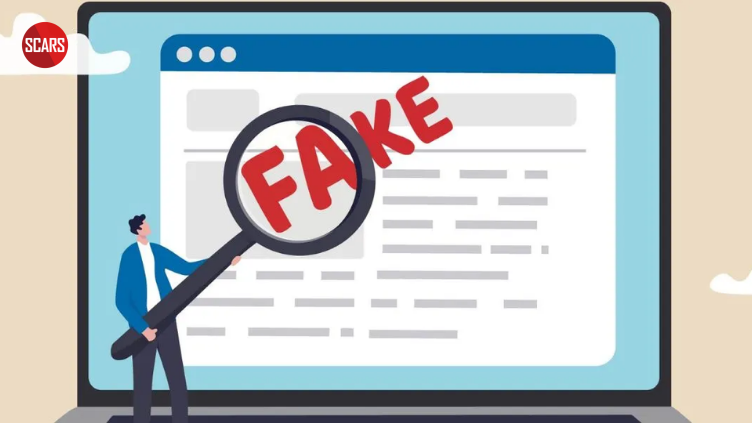Scam Victim Scammer Obsession – Part 1
The Obsessive Focus of Scam Victims on Scammers is Unhealthy!
Primary Category: Scam Victim Recovery Psychology
Authors:
• Vianey Gonzalez B.Sc(Psych) – Licensed Psychologist, Specialty in Crime Victim Trauma Therapy, Neuropsychologist, Certified Deception Professional, Psychology Advisory Panel & Director of the Society of Citizens Against Relationship Scams Inc.
• Tim McGuinness, Ph.D., DFin, MCPO, MAnth – Anthropologist, Scientist, Polymath, Director of the Society of Citizens Against Relationship Scams Inc.
About This Article
Nearly a quarter of scam victims develop an obsessive focus on scammers, fake profiles, and scam details as a negative coping mechanism to manage their trauma. This obsession provides a temporary sense of control and purpose, distracting from the emotional pain and feelings of betrayal.
The need to “do something,” often driven by a desire for justice or validation, can prevent victims from processing their emotions and moving forward in recovery. This fixation can lead to heightened stress, anxiety, and isolation, as victims become consumed with uncovering and exposing scammers.
To break this cycle, it’s crucial for victims to recognize this behavior as harmful and seek healthier ways to cope, such as professional counseling, structured support groups, and personal growth activities.
By shifting focus from the external elements of the scam to their own healing, victims can begin to rebuild their lives and move beyond the trauma.
Note: This article is intended for informational purposes and does not replace professional medical advice. If you are experiencing distress, please consult a qualified mental health professional.

A Note About Labeling!
We often use the term ‘scam victim’ in our articles, but this is a convenience to help those searching for information in search engines like Google. It is just a convenience and has no deeper meaning. If you have come through such an experience, YOU are a Survivor! It was not your fault. You are not alone! Axios!
The Obsessive Focus of Scam Victims on Scammers: A Negative Coping Mechanism for Trauma
It’s estimated that nearly a quarter of scam victims develop an obsessive focus on the scammers, fake profiles, and the details of the scam itself.
This behavior serves as a coping mechanism (maladaptive coping mechanism,) a way to deflect from the deep trauma they have experienced. The need to “do something” becomes a driving force, providing a sense of purpose and control amidst the chaos and helplessness they feel.
Understanding the Obsession
After falling victim to a scam, the shock and betrayal can be overwhelming. Many victims find themselves replaying the events, questioning how they could have been deceived, and seeking answers to make sense of what happened. This can lead to an obsessive focus on the scammers and the details of the scam. Victims may spend countless hours searching for information about the perpetrators, exposing fake profiles, or engaging in online forums where scams are obsessively discussed.
This obsession serves as a distraction from the intense emotional pain associated with the scam. By concentrating on the external aspects of the scam—the scammers and their tactics—victims can momentarily escape the internal turmoil of guilt, shame, and anger. The act of investigating and exposing scammers provides a temporary sense of agency and control, which can be comforting when victims feel powerless and violated.
The Need to “Do Something”
For many victims, the drive to expose scammers is fueled by a desperate need to “do something” in response to the trauma they have experienced. This need often stems from a desire for justice or revenge, as well as a wish to prevent others from falling victim to similar scams. It can also be a way to validate their experience, proving to themselves and others that the scam was real and that they were not simply naïve or foolish.
However, while this focus can provide short-term relief, it comes at a huge psychological cost.
The obsessive behavior can prevent victims from fully processing their emotions and moving forward with their recovery. It can also perpetuate a state of heightened stress and anxiety, as they are constantly exposed to reminders of the trauma. In some cases, this fixation can lead to further isolation and withdrawal from supportive relationships, as the victim becomes consumed by their quest to uncover and expose scammers.
It also surrounds them with like-minded obsessive individuals who form an echo chamber where rational approaches to recover are shot down in favor of chasing justice.
Moving Beyond the Obsession
To move beyond this obsessive focus, it is important for victims to recognize it as a negative coping mechanism and to seek healthier ways to process their emotions.
Professional support providers (such as SCARS Institute) and counseling or therapy can be invaluable in helping victims work through their feelings and develop more constructive coping strategies.
Support groups or community resources can also provide a safe space for victims to share their experiences and receive validation without becoming fixated on the scam. However, unless a support group is managed by professionals, it just becomes another echo chamber filled with urban legends, false information, and anti-scammer hate.
Focusing on personal growth and self-care is the crucial step in the recovery process. Engaging in activities that promote well-being, such as exercise, creative pursuits, or mindfulness practices, can help victims reconnect with themselves and their interests, fostering a sense of normalcy and hope. It’s also important for victims to set boundaries with their involvement in exposing scammers, ensuring that it does not overshadow other aspects of their lives or hinder their healing.
Ultimately, while the drive to expose scammers and seek justice is understandable, it is essential for victims to work on letting it go so they can focus on their own recovery and well-being. By shifting their focus from the external to the internal, and by prioritizing their own healing journey, victims can begin to rebuild their lives and move beyond the trauma of the scam.
Moving Forward
Letting go and moving forward begins with factual knowledge about these crimes, the criminals, and what they do to victims. SCARS recommends the following:
- Start learning properly at www.ScamVictimsSupport.org
- Sign up for FREE professional support services at support.AgainstScams.org
- Learn the facts to empower your recovery by enrolling in the FREE Scam Survivor’s School at www.SCARSeducation.org
- Find counseling or trauma therapy at counseling.AgainstScams.org
-/ 30 /-
What do you think about this?
Please share your thoughts in a comment below!
Statement About Victim Blaming
SCARS Institute articles examine different aspects of the scam victim experience, as well as those who may have been secondary victims. This work focuses on understanding victimization through the science of victimology, including common psychological and behavioral responses. The purpose is to help victims and survivors understand why these crimes occurred, reduce shame and self-blame, strengthen recovery programs and victim opportunities, and lower the risk of future victimization.
At times, these discussions may sound uncomfortable, overwhelming, or may be mistaken for blame. They are not. Scam victims are never blamed. Our goal is to explain the mechanisms of deception and the human responses that scammers exploit, and the processes that occur after the scam ends, so victims can better understand what happened to them and why it felt convincing at the time, and what the path looks like going forward.
Articles that address the psychology, neurology, physiology, and other characteristics of scams and the victim experience recognize that all people share cognitive and emotional traits that can be manipulated under the right conditions. These characteristics are not flaws. They are normal human functions that criminals deliberately exploit. Victims typically have little awareness of these mechanisms while a scam is unfolding and a very limited ability to control them. Awareness often comes only after the harm has occurred.
By explaining these processes, these articles help victims make sense of their experiences, understand common post-scam reactions, and identify ways to protect themselves moving forward. This knowledge supports recovery by replacing confusion and self-blame with clarity, context, and self-compassion.
Additional educational material on these topics is available at ScamPsychology.org – ScamsNOW.com and other SCARS Institute websites.
-/ 30 /-
What do you think about this?
Please share your thoughts in a comment below!
SCARS LINKS: AgainstScams.org RomanceScamsNOW.com ContraEstafas.org ScammerPhotos.com Anyscam.com ScamsNOW.com
reporting.AgainstScams.org support.AgainstScams.org membership.AgainstScams.org donate.AgainstScams.org shop.AgainstScams.org
youtube.AgainstScams.org linkedin.AgainstScams.org facebook.AgainstScams.org
Important Information for New Scam Victims
- Please visit www.ScamVictimsSupport.org – a SCARS Website for New Scam Victims & Sextortion Victims.
- SCARS Institute now offers its free, safe, and private Scam Survivor’s Support Community at www.SCARScommunity.org – this is not on a social media platform, it is our own safe & secure platform created by the SCARS Institute especially for scam victims & survivors.
- SCARS Institute now offers a free recovery learning program at www.SCARSeducation.org.
- Please visit www.ScamPsychology.org – to more fully understand the psychological concepts involved in scams and scam victim recovery.
If you are looking for local trauma counselors, please visit counseling.AgainstScams.org
If you need to speak with someone now, you can dial 988 or find phone numbers for crisis hotlines all around the world here: www.opencounseling.com/suicide-hotlines
Statement About Victim Blaming
Some of our articles discuss various aspects of victims. This is both about better understanding victims (the science of victimology) and their behaviors and psychology. This helps us to educate victims/survivors about why these crimes happened and not to blame themselves, better develop recovery programs, and help victims avoid scams in the future. At times, this may sound like blaming the victim, but it does not blame scam victims; we are simply explaining the hows and whys of the experience victims have.
These articles, about the Psychology of Scams or Victim Psychology – meaning that all humans have psychological or cognitive characteristics in common that can either be exploited or work against us – help us all to understand the unique challenges victims face before, during, and after scams, fraud, or cybercrimes. These sometimes talk about some of the vulnerabilities the scammers exploit. Victims rarely have control of them or are even aware of them, until something like a scam happens, and then they can learn how their mind works and how to overcome these mechanisms.
Articles like these help victims and others understand these processes and how to help prevent them from being exploited again or to help them recover more easily by understanding their post-scam behaviors. Learn more about the Psychology of Scams at www.ScamPsychology.org
SCARS INSTITUTE RESOURCES:
If You Have Been Victimized By A Scam Or Cybercrime
♦ If you are a victim of scams, go to www.ScamVictimsSupport.org for real knowledge and help
♦ SCARS Institute now offers its free, safe, and private Scam Survivor’s Support Community at www.SCARScommunity.org/register – this is not on a social media platform, it is our own safe & secure platform created by the SCARS Institute especially for scam victims & survivors.
♦ Enroll in SCARS Scam Survivor’s School now at www.SCARSeducation.org
♦ To report criminals, visit https://reporting.AgainstScams.org – we will NEVER give your data to money recovery companies like some do!
♦ Follow us and find our podcasts, webinars, and helpful videos on YouTube: https://www.youtube.com/@RomancescamsNowcom
♦ Learn about the Psychology of Scams at www.ScamPsychology.org
♦ Dig deeper into the reality of scams, fraud, and cybercrime at www.ScamsNOW.com and www.RomanceScamsNOW.com
♦ Scam Survivor’s Stories: www.ScamSurvivorStories.org
♦ For Scam Victim Advocates visit www.ScamVictimsAdvocates.org
♦ See more scammer photos on www.ScammerPhotos.com
You can also find the SCARS Institute’s knowledge and information on Facebook, Instagram, X, LinkedIn, and TruthSocial
Psychology Disclaimer:
All articles about psychology and the human brain on this website are for information & education only
The information provided in this and other SCARS articles are intended for educational and self-help purposes only and should not be construed as a substitute for professional therapy or counseling.
Note about Mindfulness: Mindfulness practices have the potential to create psychological distress for some individuals. Please consult a mental health professional or experienced meditation instructor for guidance should you encounter difficulties.
While any self-help techniques outlined herein may be beneficial for scam victims seeking to recover from their experience and move towards recovery, it is important to consult with a qualified mental health professional before initiating any course of action. Each individual’s experience and needs are unique, and what works for one person may not be suitable for another.
Additionally, any approach may not be appropriate for individuals with certain pre-existing mental health conditions or trauma histories. It is advisable to seek guidance from a licensed therapist or counselor who can provide personalized support, guidance, and treatment tailored to your specific needs.
If you are experiencing significant distress or emotional difficulties related to a scam or other traumatic event, please consult your doctor or mental health provider for appropriate care and support.
Also read our SCARS Institute Statement about Professional Care for Scam Victims – click here
If you are in crisis, feeling desperate, or in despair, please call 988 or your local crisis hotline – international numbers here.
More ScamsNOW.com Articles
A Question of Trust
At the SCARS Institute, we invite you to do your own research on the topics we speak about and publish. Our team investigates the subject being discussed, especially when it comes to understanding the scam victims-survivors’ experience. You can do Google searches, but in many cases, you will have to wade through scientific papers and studies. However, remember that biases and perspectives matter and influence the outcome. Regardless, we encourage you to explore these topics as thoroughly as you can for your own awareness.















![NavyLogo@4x-81[1] Scam Victim Scammer Obsession - Part 1 - 2024](https://scamsnow.com/wp-content/uploads/2025/04/NavyLogo@4x-811.png)










![scars-institute[1] Scam Victim Scammer Obsession - Part 1 - 2024](https://scamsnow.com/wp-content/uploads/2025/04/scars-institute1.png)

![niprc1.png1_-150×1501-1[1] Scam Victim Scammer Obsession - Part 1 - 2024](https://scamsnow.com/wp-content/uploads/2025/04/niprc1.png1_-150x1501-11.webp)